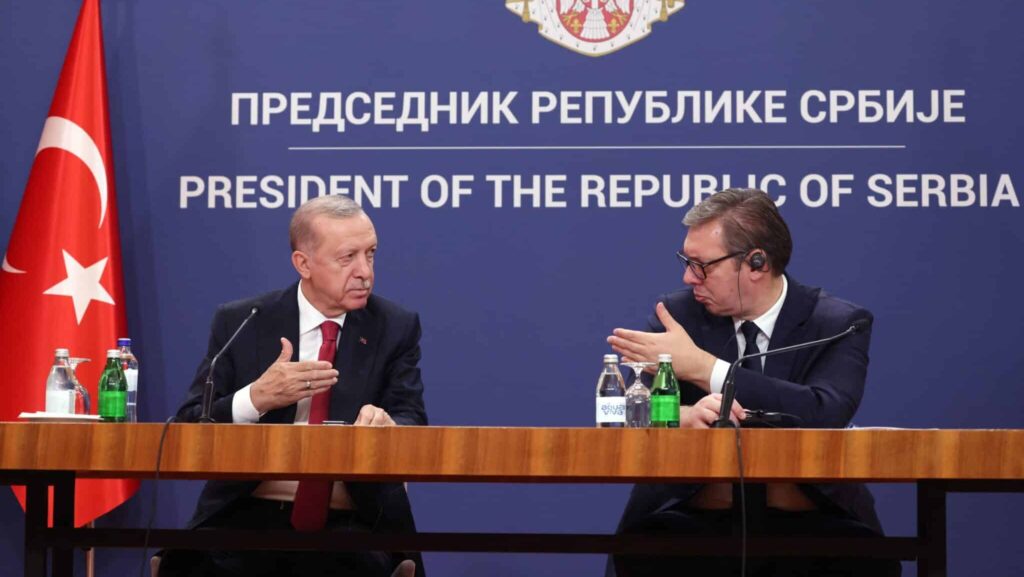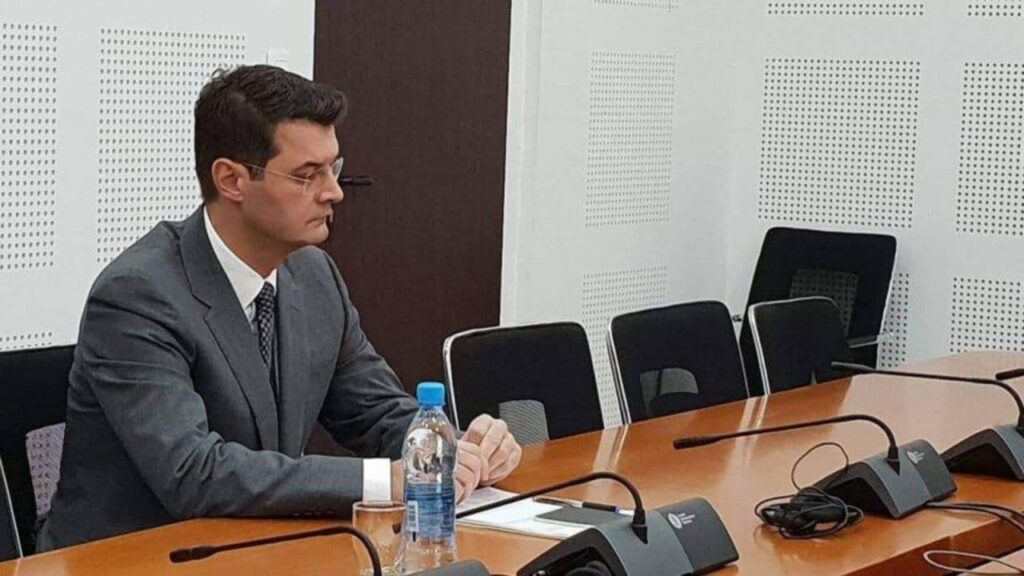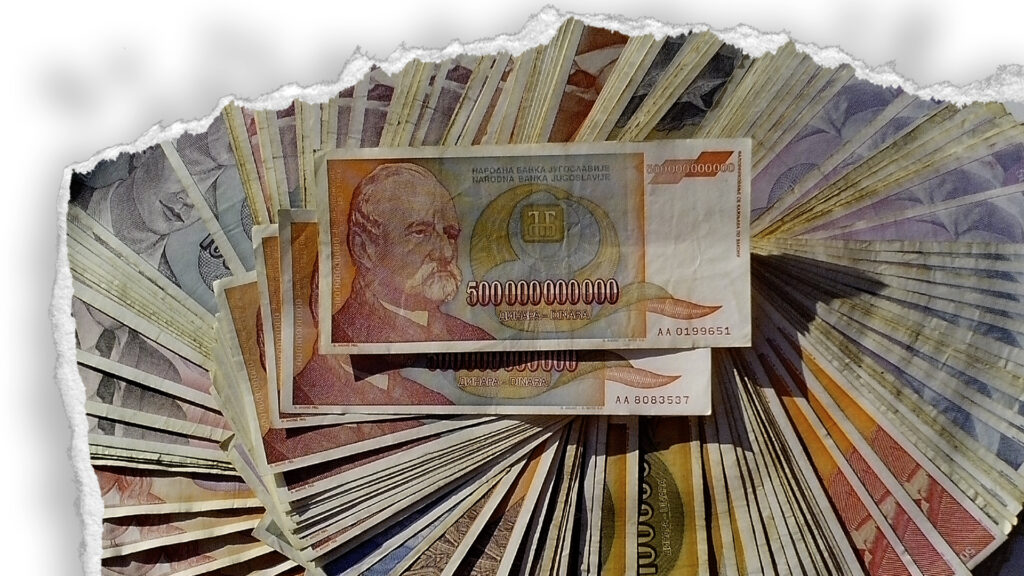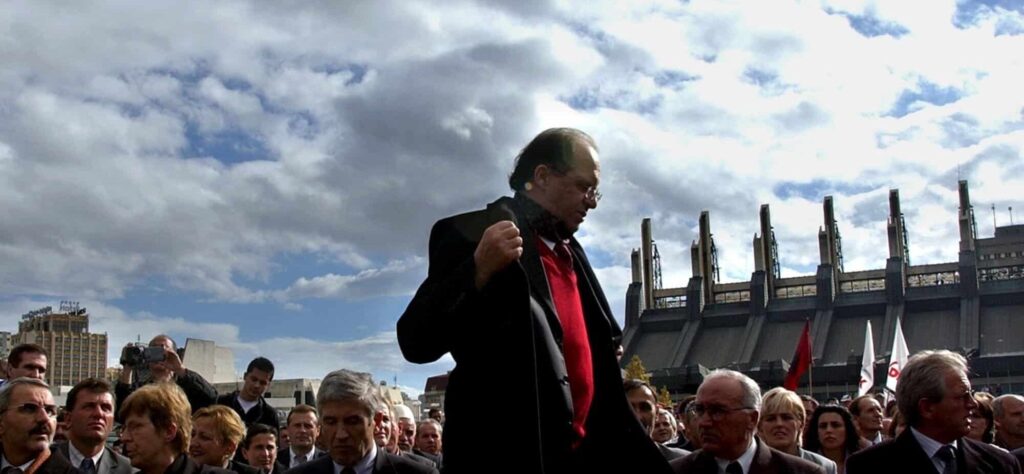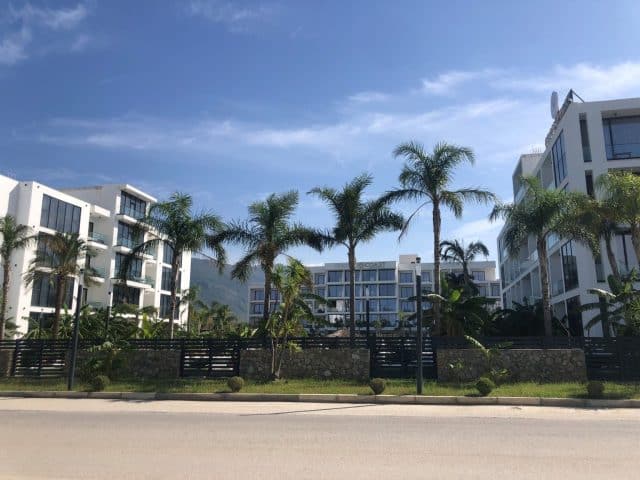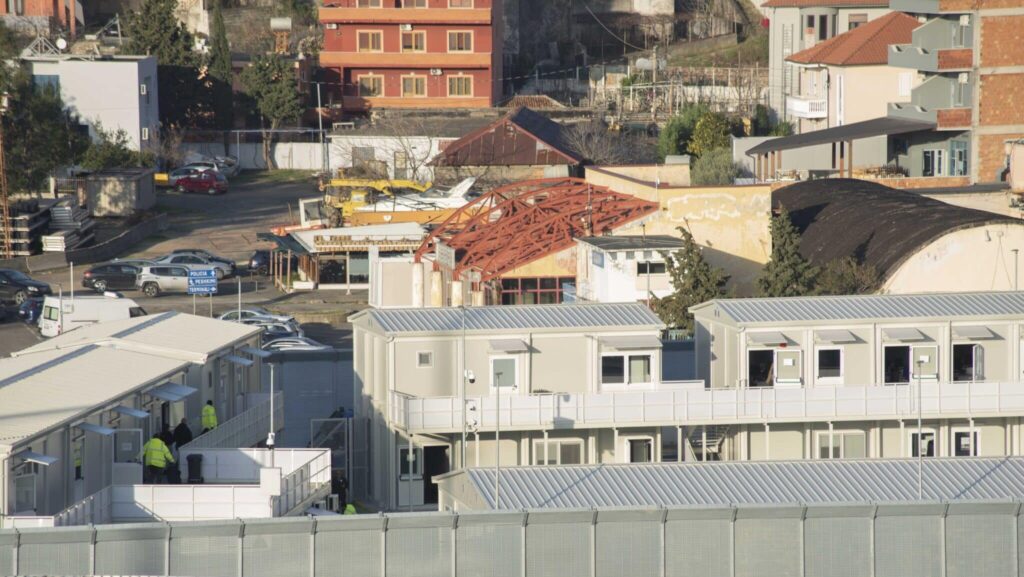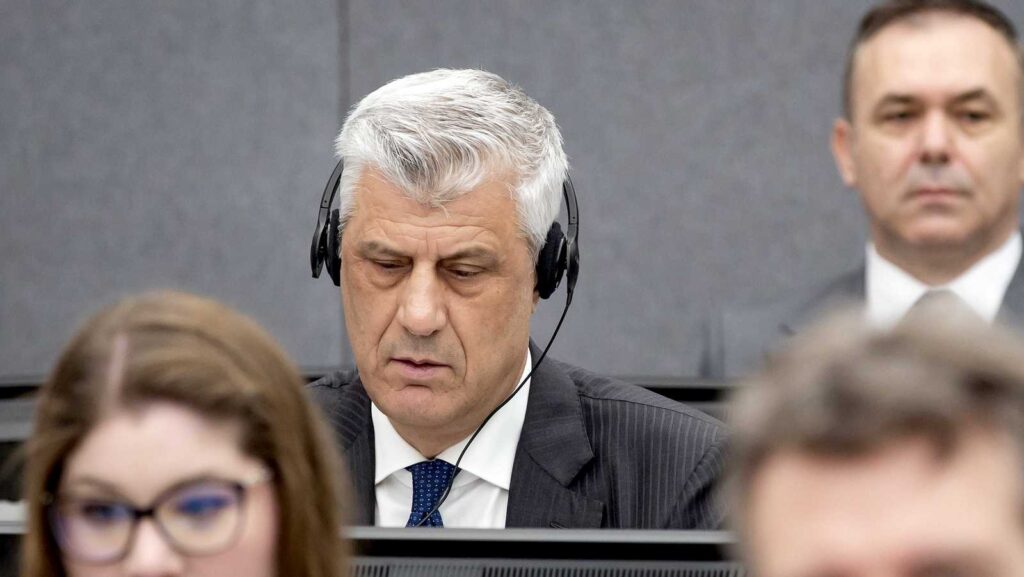
For years now I have been suffering from Milosevic fatigue. Ever since the moment that I saw his pathetic figure, leant slightly forward, defeated, walking through the prison yard in The Hague, just after his arrest in 2001.
Now I feel nothing about the man, whether he is alive or dead, and I care still less where his body is buried.
Some would find this paradoxical, given that I witnessed and reported on so much of the terrible suffering he instigated by sending the Serbian army, police and paramilitaries into Croatia, Bosnia and Kosovo in the Nineties. And even more so, since the Milosevic regime finally forced me and my two children to leave Serbia in order to avoid arrest in the spring of 1999.
Even my daughter, aged 14, who blames him for uprooting her life, is more upset over his death than I am. How he can just die in prison, with no real punishment when so many people were killed, she asks?
It is not that I don’t hear her voice, or those of the thousands of victims who feel cheated by his death, disappointed that charges against him will never now be confirmed by the Hague war crimes tribunal.
I hear these voices loud and clear. What I refuse to do is to lend exclusive importance to a man who was only the executor of forces behind him – the dark and dangerous forces of Serbian nationalism.
It must be recalled that Milosevic was not a dictator. Even if he was not at first elected democratically, he was supported by the majority in Serbia and cannot be held solely to blame for the crimes that were committed.
It was the masses who empowered him, who got rid of him when he failed to conquer territories, and who found new heroes in the ranks of the ultra-nationalist Serbian Radical Party and in parts of the current government.
Behind their tears and mourning is a sense of deep frustration that they can no longer impose their warmongering xenophobia on society by force, or press the idea of Greater Serbia on their neighbours by killing, burning and looting.
When I look back on the early Nineties, and on 1991 in particular, I recall my unease. Yugoslavia still existed but sharp and painful divisions had already opened up in Serbian society, pitting families and friends who supported Milosevic against those who did not. Wars had yet to start, and nobody had died, but a silent war was already going on in Serbia.
Even the restaurants were politically split. Some became “ours” and others “theirs”. The various media found their own journalists and believers, though only “theirs” had money, power, printing houses and frequencies.
The masses were most definitely “theirs”. Workers and peasants were driven in buses with Milosevic’s portrait on the front to vast rallies. Their demonstrations flooded the television screens, as they sang, as if in a trance, “Slobo, mi te volimo”, meaning “Slobo, we love you”.
Many Serbs who until then couldn’t have told the difference between a Catholic or an Orthodox church became suddenly deeply religious. Children and old people rushed to be baptised, almost as a political statement. The Serbian Orthodox Church, always a powerhouse of nationalism, underwent a dramatic revival, celebrating Milosevic as Serbia’s saviour.
On March 9, 1991, I joined the riotous opposition demonstration in Belgrade against Milosevic. As a student protest turned into widespread rebellion, it was the first – and probably the last – time that a powerful anti-war demonstration would shake Serbia. Protestors broke windows, overturned cars and fought with police, while the police responded with tear gas and water canons.
That day it still seemed possible that we might avert the slide to war and defeat “them” internally.
But then the tanks of the Yugoslav Army appeared on the streets to disperse the crowds. Behind the closed door of my flat I listened to the rumble of armoured vehicles, as I struggled to combat my own anger and helplessness.
That March, Milosevic declared that Yugoslavia was dead, and months later the tanks were travelling from Serbia towards the town of Vukovar, in Croatia, which they would turn into dust.
Over the summer, as long lines of armoured vehicles and tanks trundled through the towns of Vojvodina towards Croatia, I watched the euphoric, smiling faces on television. Masses of people packed the streets, applauding and throwing flowers.
Then, when a bomb was thrown into the house of a local dentist, a Croat, in the Vojvodina town where I was born, I heard people say, “He deserved it, he was secretly preparing for Croatian forces to occupy the town!” A 75-year-old man.
When the Croats of the village of Hrtkovci, in Vojvodina, were expelled all in one day, few words of protests could be heard.
In April 1992, a Serb acquaintance of mine from Zvornik, in eastern Bosnia, reached Belgrade, having taken off his army uniform and thrown away the weapon that he had been given when he was mobilised. At night and in secret, he had crossed the river Drina and deserted, rather than take part in the ethnic cleansing of his Bosniak neighbours.
His main duty, as a soldier, he told me, was to shoot at the dead bodies of Bosniaks, which had been thrown into a lake and had been floating for days, like balloons. By sinking the corpses, he would be concealing the evidence of a crime.
At first, in shock, he tried to explain in Serbia what had happened, but the local radical nationalists soon marked him down as a deserter and a traitor. The less radical just sighed, “What can be done? It’s the war.”
So he stopped talking. He had left his elderly parents in Zvornik, hiding a young Bosniak couple in their flat. Then he heard that somebody had reported this fact to the paramilitaries and they had come to kill the young couple.
Then, I interviewed women from the eastern Bosnian town of Foca. Serbian forces had kept them over the summer of 1992 in an improvised brothel, where they were systematically raped.
I have written and talked about this in Serbia, wherever I can, to whoever will listen. Most don’t. The taxi drivers, hairdressers, and the others just say, “Come on, Serbs would never do that.”
Then came 1995, when the Serbs outside Serbia paid the price. Pressurised by the international community, Milosevic turned his back on the Bosnian and Croatian Serbs and refugees started flooding into Serbia. The nationalist elite and the Church had to face the fact that their executor had not fulfilled their dream.
Many remember the winter of 1996 and the three months of massive peaceful protests against the way Milosevic had stolen votes in the local elections. By then I could see that a hybrid phenomenon had been born. The genuinely democratic forces had now been joined by others who were very different – disappointed nationalists, disappointed Orthodox churchmen, the disillusioned nationalist elite of Serbia.
Only a new war could temporarily recover the position of Serbia’s shaken God. So along came Kosovo in 1998. At the end of February, in Qirez and Likosani, in Kosovo’s Drenica region, the first mass killing of civilians occurred.
On the floor of a house in Qirez I saw the body of a woman who was eight months pregnant. In other homes lay other victims. The same day, in neighbouring Likosani, every man in the Ahmeti family who had been at home, all nine of them, were executed. Only one brother survived, as he had been away that day, visiting a neighbouring town. Nine mothers, nine wives and many children were left with nothing to live on.
I wrote up the story in Serbia for an already marginalised newspaper. A handful of sympathisers read it and understood. The rest commented, “Shiptari [Albanians] – They’re all terrorists!”
That summer, I drove across Kosovo, with the police and army in full swing. In the early mornings, from the hills, the army would start shelling villages. When peasants escaped to the woods, the police went in. First, they took everything valuable from the deserted houses, then they set them on fire. House by house and village by village they went, until they had burned the whole of Kosovo, apart from the towns where Serbian forces held power.
Hundreds of thousands of civilians found themselves walking through the mountains, carrying their elderly with them and burying them if they died in the woods.
At one point a Serbian policeman, from Kursumlija, in southern Serbia, stopped me and asked for a lift to Pristina. “Why for God’s sake, are you burning those houses?” I asked.
“Once you start doing it, you can’t stop,” he replied, “though no police in the world could do that without orders.” I argued, saying there was something more important than orders. He got out of the car, angry.
When I spoke about what was happening in Kosovo, some people in Serbia offered justifications. “Albanians don’t come back once you burn their houses,” they said. “Now they will leave for Albania. It had to be done.”
And, so on and on, towards Drenica, the Racak crime in January 1999 and the NATO strikes that followed against Serbia.
Now in London, on 5 October 2000, I watched on television as people from across Serbia flooded into Belgrade, breaking into and torching the parliament building.
Milosevic was overthrown. But by then I had no illusions. What had tipped the balance against Milosevic was not the rise of truly democratic forces, but the massed ranks of disappointed nationalists.
That dark side of Serbia was angry now with Milosevic as the serial loser of wars and territories. It was the Milosevic who lost Kosovo, not the Milosevic who committed crimes there, whom they hated.
Since then, I have followed public opinion surveys closely, trying to detect how many of his old followers had switched over to the strongest opposition nationalist party, the Radicals, and how many had softened their position slightly and rallied to the current government of Vojislav Kostunica, which plays the pro-European and “moderate nationalist” cards at the same time.
Meanwhile, Milosevic is yesterday’s man, and real tears are only shed for him in small provincial towns, among the housewives and pensioners who – strangely – identified him with communism and Yugoslavia.
But Serbia’s old nationalistic demons are still there, with no remorse, and their frustration grows with each bill that Serbia has to pay for the mistakes of the Nineties. One is possible war reparations to Bosnia, another is the likely independence of Kosovo and Montenegro, and yet another is the extradition of the war crime indictee Ratko Mladic, still seen by many as a hero.
Milosevic’s death has only acted as a catalyst for their existing frustrations. The real question is which side in Serbia – those disappointed nationalists, or the genuine democrats – will come out on top.
This article was originally published on March 15, 2006. At the time of publication, Gordana Igric was BIRN’s editorial and development director, and editor-in-chief of Balkan Insight.
Postscript: After Milosevic, a new regime slowly rises
Milosevic was overthrown, sent to The Hague to stand trial and then died in custody. But after his death, although he was now very much ‘yesterday’s man’, this wasn’t the end of his regime’s political influence.
Initially it did not look good for the Socialist Party of Serbia after it was ousted from power. At elections in January 2007, the party, now led by its 1990s-era spokesman Ivica Dacic, barely passed the threshold to get into parliament. The following year, Kosovo declared independence and nationalists rioted in Belgrade, but could do nothing to prevent the defeat that Milosevic’s policies had brought about.
However, soon Milosevic’s former cronies were on their road back towards government. At elections in May 2008, the Democratic Party won, but could not form a ruling majority alone. It opted for a coalition with its mortal enemy from the 1990s, the Socialists. To ease the shock of bringing back into government the party whose authoritarian rule it had worked so hard to overthrow, the Democratic Party proclaimed it was seeking “reconciliation” for Serbia. The consequence was to politically normalise the Socialists again, despite their heavy baggage from the Milosevic years.
After Milosevic’s death, many in Serbia continued to deny the crimes committed during the 1990s wars. War crime trials were held and some paramilitaries were even convicted, but no high-profile figure was even tried. When it comes to those tried in The Hague, Serbia did in the end arrest and extradite everyone who was on the run (who hadn’t died in the interim), but with much prevarication and after a very long time. Ratko Mladic, for example, was arrested in Serbia and extradited to stand trial only in 2011.
The new force that came to power in 2012 combined elements who had left the ultranationalist Serbian Radical Party and Milosevic regime veterans – embodied in the figure of Aleksandar Vucic. Vucic, who was the Serbian government’s information minister when Milosevic was in power began consolidating power to a degree not seen since those years.
Since 2012, Vucic has been prime minister twice and was elected president twice. The Socialists have become his loyal junior coalition partners, with Ivica Dacic taking a variety of cabinet roles.
Vucic’s government has made a great show of denying the Srebrenica massacres constituted genocide while accusing others of persecuting Serbs. Meanwhile, some of those who were convicted of war crimes by the Hague court have since returned to the country and been welcomed as heroes. Many of them are regular guests on pro-government TV stations, as loyalist media has thrived under Vucic while independent media has suffered – just as it did under Milosevic.
In 2018, addressing Serbs in Kosovo, Vucic described Milosevic as “a great Serbian leader”, although his “good intentions” failed to deliver positive outcomes.
